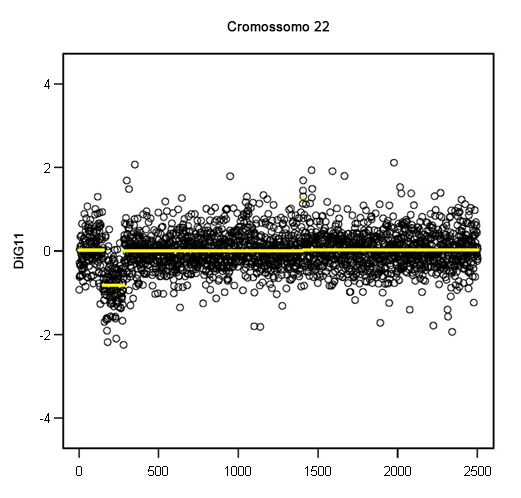Summary
Definition
History and exam
Key diagnostic factors
- presença de fatores de risco
- cianose
- sinais de insuficiência cardíaca
- sopro cardíaco
- características faciais específicas
- fenda labial e fenda palatina
- deficit no crescimento
- convulsão ou tetania
Other diagnostic factors
- apresentação na primeira infância
- dificuldade para se alimentar
- atraso na fala
- distúrbio de aprendizagem não verbal
- infecções frequentes
- esquizofrenia
- características da síndrome CHARGE (caracterizada por coloboma, atresia das cóanas e canais semicirculares anormais)
Risk factors
- pai/mãe com síndrome de DiGeorge
Diagnostic investigations
1st investigations to order
- cálcio sérico
- paratormônio (PTH) sérico intacto
- contagem de células T
- análise cromossômica por microarray
- amplificação de múltiplas sondas dependentes de ligação
- títulos imunológicos específicos (se houver imunização prévia)
- Hemograma completo
- hormônio estimulante da tireoide (TSH)
- T4 livre
- radiografia torácica
- eletrocardiograma (ECG)
- imunoglobulinas séricas
Investigations to consider
- hibridização in situ fluorescente
- cariótipo
- ecocardiograma
- ultrassonografia renal e vesical
- audiometria
- avaliações odontológicas e palatais
- avaliação oftalmológica
Treatment algorithm
nascimento até 4 meses
Lactentes e crianças pequenas (4 meses a 5 anos)
crianças em idade escolar (5 a 18 anos)
adultos
Contributors
Authors
James A. Stadler III, MD, MAS
Assistant Professor of Neurological Surgery
University of Wisconsin School of Medicine and Public Health
University of Wisconsin-Madison
WI
Divulgaciones
JAS declares that he has no competing interests.
Agradecimientos
Dr James A. Stadler III would like to gratefully acknowledge Dr Sean A. McGhee and Dr Maria Garcia Lloret, the previous contributors to this topic.
Divulgaciones
SAMG has provided testimony as an expert in a criminal case in which immune deficiency was a concern, and is a co-author of a reference cited in this topic. MGL is a co-author of a reference cited in this topic.
Revisores por pares
Gabriela M. Repetto, MD
Director
Centro de Genetica Humana
Facultad de Medicina
Clínica Alemana-Universidad del Desarrollo
Santiago
Chile
Divulgaciones
GMR is a co-author of a reference cited in this topic.
Lisa Kobrynski, MD, MPH
Associate Professor of Pediatrics
Division of Pulmonary, Allergy & Immunology, Cystic Fibrosis, and Sleep
Emory University
Atlanta
GA
Divulgaciones
LK is an investigator in clinical trials by Baxter Bioscience. These trials do not involve patients with 22q11DS. LK is an author of a number of references cited in this topic.
Winnie Ip, BHB, MBChB, FRACP, MD(Res)
Consultant Immunologist
Department of Immunology
Great Ormond Street Hospital
London
UK
Divulgaciones
WI declares that she has no competing interests.
Agradecimiento de los revisores por pares
Los temas de BMJ Best Practice se actualizan de forma continua de acuerdo con los desarrollos en la evidencia y en las guías. Los revisores por pares listados aquí han revisado el contenido al menos una vez durante la historia del tema.
Divulgaciones
Las afiliaciones y divulgaciones de los revisores por pares se refieren al momento de la revisión.
Referencias
Artículos principales
European Society for Immunodeficiencies. Clinical Working Party diagnostic criteria for PID: DiGeorge syndrome diagnostic criteria [internet publication].Texto completo
Boot E, Óskarsdóttir S, Loo JCY, et al. Updated clinical practice recommendations for managing adults with 22q11.2 deletion syndrome. Genet Med. 2023 Mar;25(3):100344.Texto completo Resumen
Óskarsdóttir S, Boot E, Crowley TB, et al. Updated clinical practice recommendations for managing children with 22q11.2 deletion syndrome. Genet Med. 2023 Mar;25(3):100338.Texto completo Resumen
Mustillo PJ, Sullivan KE, Chinn IK, et al. Clinical practice guidelines for the immunological management of chromosome 22q11.2 deletion syndrome and other defects in thymic development. J Clin Immunol. 2023 Feb;43(2):247-70.Texto completo Resumen
Artículos de referencia
Una lista completa de las fuentes a las que se hace referencia en este tema está disponible para los usuarios con acceso a todo BMJ Best Practice.
Diferenciales
- Anomalias não sindrômicas
- Exposição à isotretinoína
- Síndrome CHARGE
Más DiferencialesGuías de práctica clínica
- Updated clinical practice recommendations for managing children with 22q11.2 deletion syndrome
- Clinical practice guidelines for the immunological management of chromosome 22q11.2 deletion syndrome and other defects in thymic development
Más Guías de práctica clínicaFolletos para el paciente
Esquizofrenia: quais são as opções de tratamento?
Esquizofrenia: perguntas a fazer ao seu médico
Más Folletos para el pacienteInicie sesión o suscríbase para acceder a todo el BMJ Best Practice
El uso de este contenido está sujeto a nuestra cláusula de exención de responsabilidad
